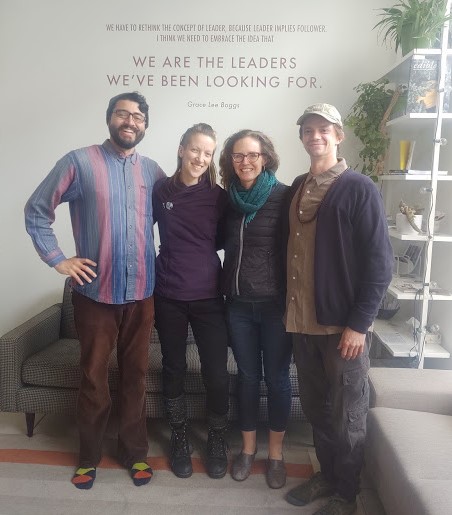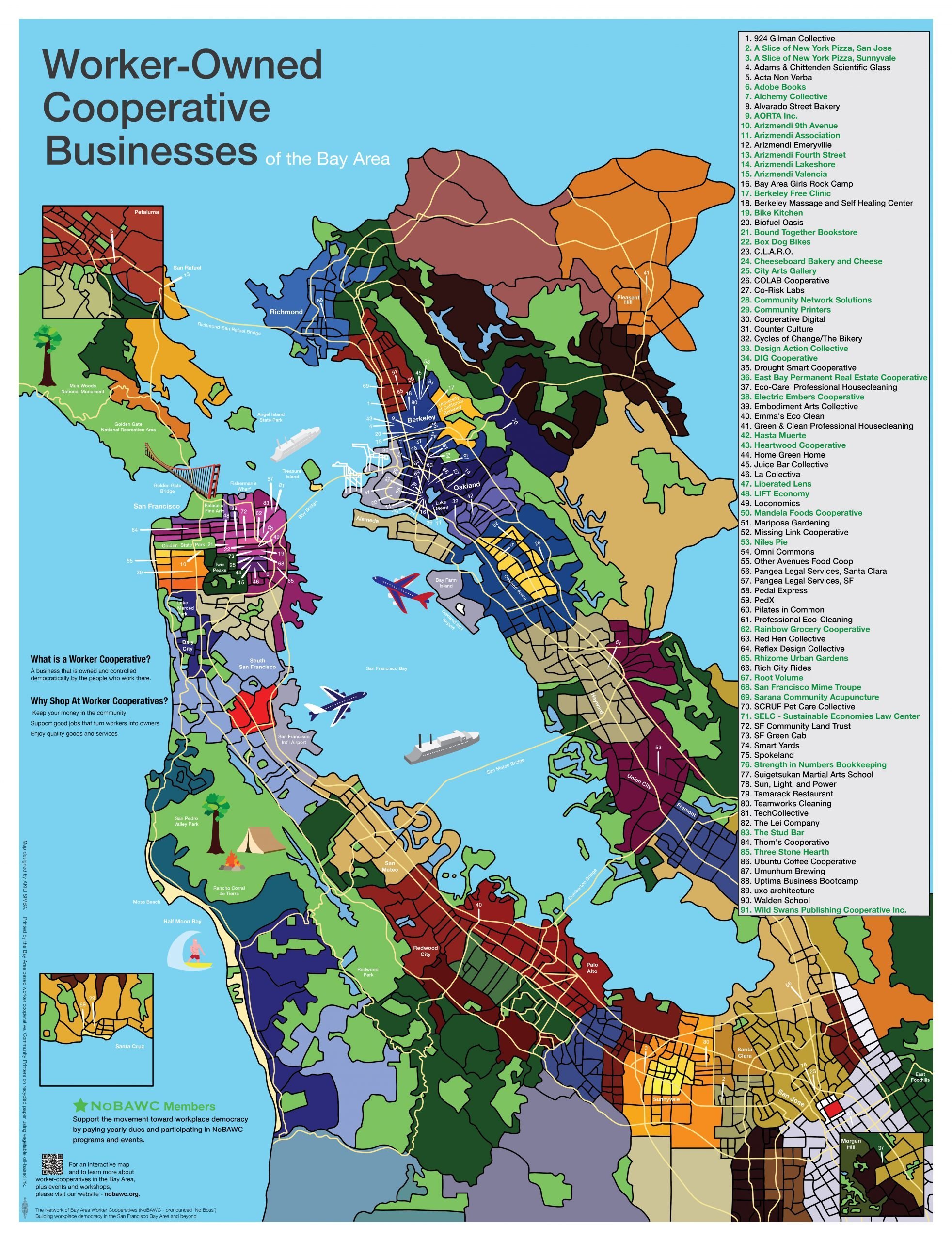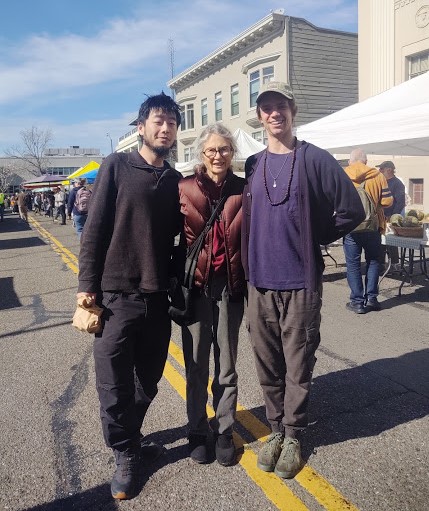
By Andrew Babson, Cascade Cooperatives Steering Committee Member
Earlier this year, before the onset of COVID in the U.S., my friend and fellow cooperative entrepreneur David Zhang and I went on a road trip to investigate the Bay Area cooperative culture. It is widely known among cooperative enthusiasts that the Bay Area is a place with a fairly abundant and thriving cooperative economy. As I am involved in cooperative development with Cascade Cooperatives, I figured it would be helpful to go see for myself, and get a better idea of what a more developed cooperative community looks like.
We managed the whole drive from Bellingham to the Bay Area in a day. We stayed at our friend Jane’s place, in the Savo Island Cooperative Housing Community in Berkeley.
The first morning we met with members of the organization known as SELC, which stands for Sustainable Economies Law Center. Their office is in Oakland, and we were greeted with a lovely interior filled with bikes, yoga balls, and standing desks.
Our meeting was with Ricardo Samir Nuñez, the Director of Economic Democracy at SELC, as well as the Board President of the U.S. Federation of Worker Cooperatives, and who has done quite a lot of work with respect to cooperative development in the Bay Area. We also briefly met with Yassi Eskandari, SELC Attorney and Policy Director, who in hearing of our hope to develop a cooperative space suggested we visit a place known as the OMNI Commons.
Since Ricardo and the rest of SELC are primarily focused on the legal aspects of economic development, we asked him about advocacy and how we might effectively advocate for cooperative development up here in Bellingham and Whatcom County. Ricardo pointed us to the SELC webpage, which offers a lot of resources around local policy and has examples of how they have successfully implemented favorable policy in the Bay Area.
One particularly impressive accomplishment has been SELC’s involvement in passing resolutions in both the City of Oakland and the City of Berkeley that not only provide municipal financial support to development, but also pave the way for further funding as a line item in the cities’ budgets. It was really great to learn about wonderful resources, and I am still inspired by the dedication of such ambitious cooperativists.
Not long after our meeting with Ricardo, I had a meeting with Stephen Switzer from NoBAWC (pronounced “no boss”), the Network of Bay Area Worker Cooperatives. Stephen was working on his computer as I walked in his office, and we went to a local coffee shop to discuss some of the ins and outs of developing a cooperative business network.
One thing Stephen told me that was particularly interesting was that although there are around 80 different members of the network, 50% of the financial backing from NoBAWC comes from two of its largest cooperative members.

Another interesting thing I learned is that NoBAWC’s co-op map is a key feature in retaining many of its members. This map includes all worker cooperatives in the Bay Area and is an effective marketing tool as it is freely distributed in the region, helping build consumer awareness and support for the worker co-op sector. Other features that NoBAWC offers to co-ops that join the network are discounts at other cooperatives as well as a number of in-person professional development events, and often hosting happy hours where co-op worker-owners can both talk coop and let off some steam from the day.
Later, David and I were able to meet with Sara Stephens, a SELC Legal Fellow, and got to take part in a SELC Legal Cafe. SELC Legal Cafes are monthly meetings where those who wish to start worker co-ops come together to share their visions and get some legal advice and consulting. David and I inquired about our interest in founding a cooperative venue in Bellingham, and she pointed us to some helpful resources around establishing bylaws, which is a foundation for almost any cooperative business.
Over the rest of the week, David and I had meetings with other folks in the cooperative community: including prolific co-op attorney Jesse Palmer, who does work for cooperative businesses, venues, and housing projects; and Xander Lenc, one of the directors of the Berkeley Student Cooperative (BSC), a housing cooperative run by Berkeley students since the 1930s.
Near the end of our journey, we were able to meet with two really awesome coop developers: Foresta Sieck-Hill and “Smoot” Laura Smoot, who work for NoBAWC and the U.S. Federation of Worker Cooperatives, respectively. They both offered a great deal of wisdom and helpful info around NoBAWC’s structure and organization, and more info about resources NoBAWC offers its members including numerous workshops (HR, finance, marketing), hosting guest speakers from co-ops in other regions (many from abroad, such as Japan and Ghana), as well as conflict-resolution services for members.
There’s so much more I could write about this trip! We met with so many amazing folks and got to see so many beautiful cooperatives! We even stayed at a couple of housing co-ops in San Francisco and Berkeley. I am really grateful for the time I was able to spend learning about the lovely cooperative culture in the Bay Area, and am so inspired to grow the co-op dream here in Washington.
There’s so much we can accomplish if we work together. We truly live in the Age of Co-opportunity!

